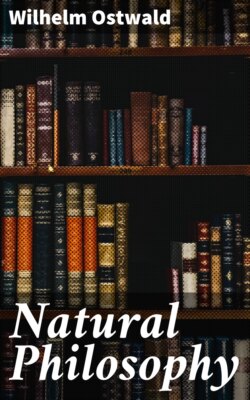Читать книгу Natural Philosophy - Wilhelm Ostwald - Страница 9
На сайте Литреса книга снята с продажи.
4. Concrete and Abstract.
ОглавлениеTable of Contents
Such coinciding or repeated parts of similar experiences we call, as already stated, concepts. But here, too, attention must immediately be drawn to a linguistic imperfection, which consists in the fact that in such a group of coinciding experiences we designate by the same name both the isolated experience or the object of a special experience and the totality of all the coinciding experiences; in other words, all the similar experiences. Thus, horse means, on the one hand, quite a definite thing which for the moment forms an object of our experience, and, on the other, the totality of all possible similar objects which have been present in our former experiences, and which we shall meet in our future experiences. It is true that these two sorts of contents of consciousness bearing the same name are distinguished also as concrete and abstract, and there is an inclination to attribute "reality" only to the first, while the other, as "mere entities in thought," are relegated to a lesser degree of reality. As a matter of fact, the difference, though important, is of quite another kind. It is the difference between the momentary experience, as opposed to the totality of the corresponding memories and expectations. Hence not so much a difference in reality as in presence. However, our observations have already made it apparent that presence alone never yields knowledge. A necessary part of knowledge is the memory of former similar experiences. For without such memory and the corresponding comparison, it is quite impossible for us to get at those things which agree and which, therefore, may be predicted; and we should stand before every one of our experiences with the helplessness of a new-born babe.[A]
